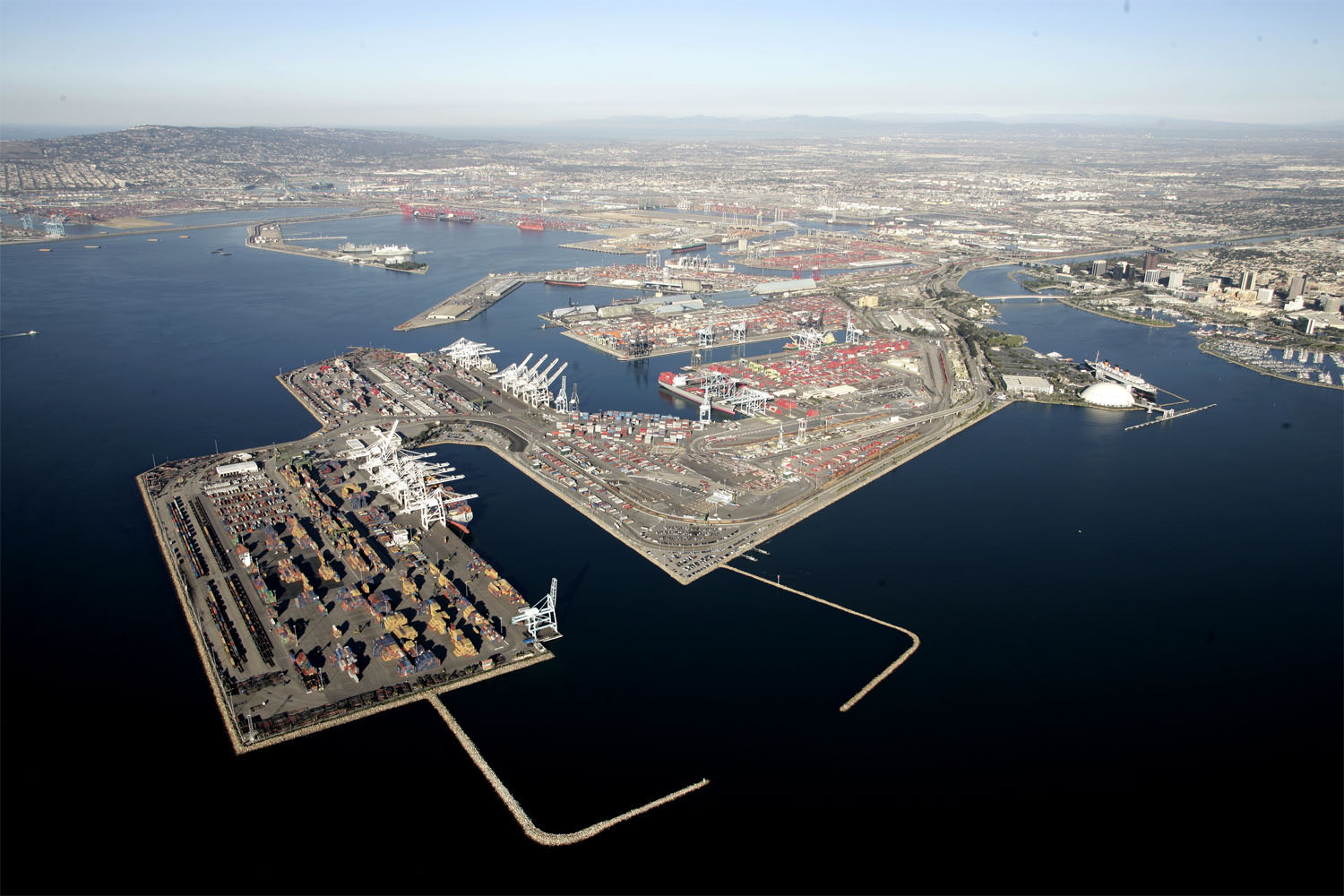
File photo.
Consultants, economic and trade experts and other harbor affiliates expressed their uncertainty over the upcoming summer-fall peak shipping season during the 13th annual “Pulse of the Ports Peak Season Forecast” Wednesday morning.
“Looking back over the past year, we certainly had a lot of challenges, and we still have quite a few,” Port of Long Beach Interim Chief Executive Duane Kenagy told room full of industry experts at the Long Beach Convention Center.
In 2016, U.S. imports from China rose 4.1 percent, despite being projected to increase 5.5 percent.
Senior economist at IHS Maritime & Trade Mario Moreno said that a slowing U.S. economy and a demand for Chinese auto parts, among other issues, caused the projected import growth to be lower than expected.
RELATED
After Challenging 2016, Facing Uncertain Trade Policy Tweaks, Port Officials Confident in Future
Auto parts are the second largest import category to the U.S. from China.
Keeping focus on U.S. trade relations with China, Moreno discussed the possibility of a U.S.- China trade war.
During his presidential campaign, President Donald Trump called China a currency manipulator and an “unfair” trader, saying he would impose tariffs as high as 45 percent on all Chinese imports.
However, Moreno said that taxing Chinese imports would increase the cost for U.S. consumers and that in retaliation, China would most likely impose tariffs on American exports.
“An all out trade war between China and the U.S. still looks unlikely, as both these nations have a lot to lose,” he concluded.
Ken O’Brien, COO of Gemini Shippers Group, expressed uncertainty over the future of trade agreements.
“Whatever your political leaning, I think all Americans can see that our nation’s trade and regulatory policies are in a state of change,” he said. Trade initiative, including Trans Pacific Partnership (TPP), the Border Adjustability Tax and possible rewrites of North American Free Trade Agreement (NAFTA) all create future uncertainty for importers.”
Alex Cherin, intermodal conference executive director for the California Trucking Association, said that funding cuts to the Department of Transportation (DOT) and the Environmental Protection Agency (EPA) will affect port truck drivers and the amount and type of cargo flow at the port.
RELATED
Trump’s Repeal of Environmental Laws Sparks Condemnation, Hints of Future Legal Battles Over Climate
In 2008, the trucking industry invested around $1 billion to buy “green” trucks. Cherin said that at that time, there was certainty that state and federal environmental regulations would support the investment.
“I’m not sure if the same attitudes would prevail today, given the current climate in Washington D.C.,” he said.
While the future of environmental regulations is uncertain, Kenagy said that the port remains committed to being green.
Earlier this year, the port announced it would be purchasing zero-emission vehicles with the help of a $9.7 million grant from the California Energy Commission.
“We also remain committed to the environment, and the progress we’ve made on clean air and clean water is truly astounding,” he said. “But we’re going even further. We’re working on our Clean Air Action Plan 3.0 now, taking further steps to clean the environment and aid our local communities.”

